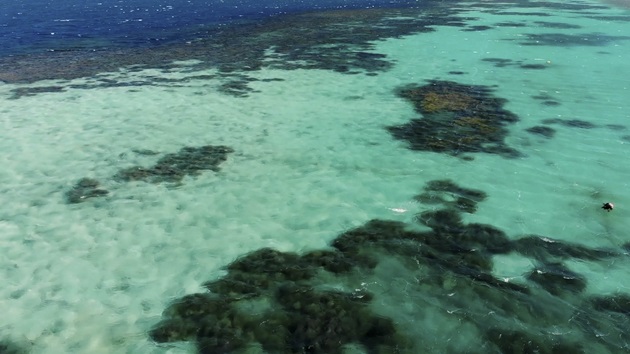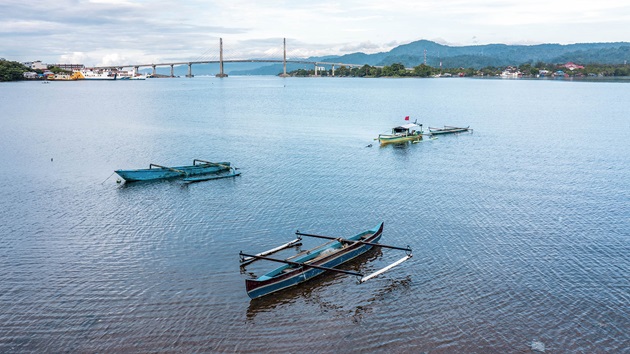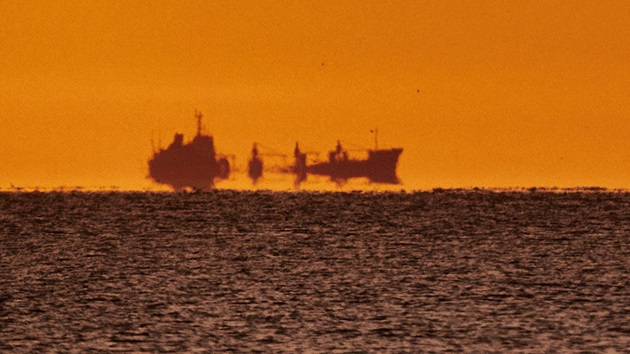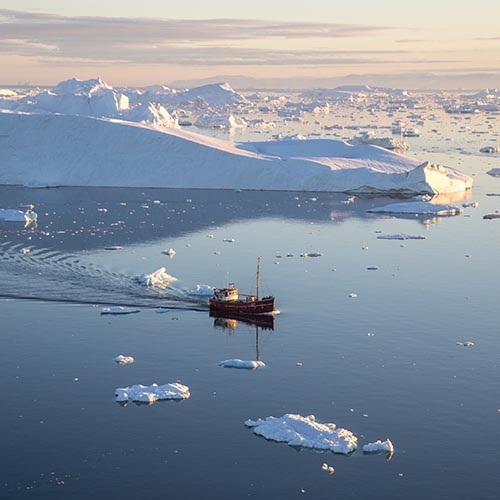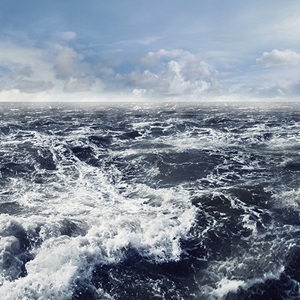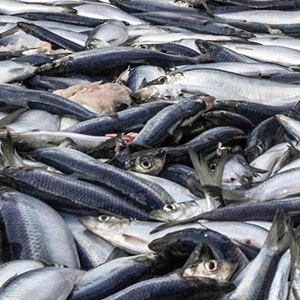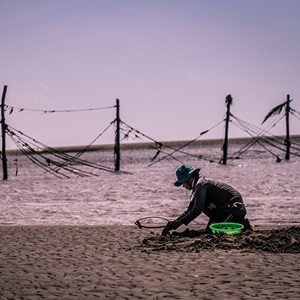Climate change is having a profound impact on our ocean and marine life. Its effects are changing the distribution of fish stocks and their food.
Balancing economic and environmental priorities is now even more important to keep our ocean healthy and full of fish for the future - we can only do this by fishing sustainably.
How does climate change affect the ocean and marine life?
The ocean plays a major role in climate dynamics: it produces approximately 50% of the planet's oxygen and has absorbed 93% of the excess heat from greenhouse gas emissions since the 1970s.
The ocean is also home to between 500,000 and 10 million marine species, contributing enormously to the biodiversity of our planet.
Given its importance to the planet, it's vital we manage the ocean in a sustainable way. Changes to the ocean mean changes to fish stocks. To manage fishing sustainably requires adapting to whatever issues climate change brings.
In the past 30 years, marine heatwaves are estimated to have increased by more than 50%.
Globally, ocean temperatures are predicted to increase by 1-4°C by 2100.
These changes are impacting marine life. Sudden rises in temperature and acidification can lead to the loss of marine habitats and species. Shifting ocean currents and warming waters are changing the distribution of fish stocks and altering the structure of ecosystems.
Witness to Climate Change
How does climate change affect fishing?
Climate change threatens fish stocks, but also creates new opportunities for fishing.
Areas in the Tropics are predicted to see declines of up to 40% in potential seafood catch by 2050.
In contrast, areas in higher latitudes, such as the North Atlantic and North Pacific, are seeing increases in the range of some fish species.
These changes bring challenges. To continue to fish sustainably requires adopting new ways of fishing.
The fishing industry and governments have found it difficult to agree how best to manage changing fish stocks, particularly if fish are moving across international boundaries or where catches need to be significantly reduced.
A shift towards blue food could aid Sustainable Development Goals, including Goal 2: to improve nutrition, Goal 12: ensure sustainable consumption and production, and Goal 14: sustainably use marine resources.
If climate change affects fish, can I still eat it?
Yes. Try to choose MSC labelled fish and seafood. MSC certified fisheries are well managed and more prepared for environmental changes. These fisheries follow current scientific advice to ensure they catch fish sustainably.
Wild fish is a low carbon food
Additional good news is that fishing has less impact on climate than the harvesting of other proteins. A study of greenhouse gas emissions of wild fisheries found that each kg of fish caught produces between one and five kg of carbon. By comparison, red meat production is estimated to range from 50 to 750 kg of carbon per kg of meat.
There is also evidence that sustainable fishing helps to reduce carbon emissions by increasing efficiency. For example, increased catches within Icelandic fisheries mean that fishing vessels now make shorter fishing trips, reducing their fuel use and carbon emissions as a result.
Blue transformation
How do sustainable fisheries cope with climate change?
Sustainable fisheries that meet the MSC’s standard for sustainable fishing are well-managed and more prepared for climate change.
These fisheries have effective monitoring and management in place to reduce their impacts on the environment and only catch what is sustainable. Following advice from scientists, these fisheries have pre-agreed plans for responding to likely environmental changes.
These fisheries show that it is possible to balance economic and environmental priorities to safeguard our oceans and seafood supplies.
What happens when fisheries struggle to adapt to climate change?
As climate change can affect stocks in unexpected ways, even MSC certified fisheries can experience problems.
Here are two examples of fish stocks affected by climate change:
North East Atlantic mackerel
There has been a rapid change in Atlantic mackerel distribution since 2007. Stocks have moved northward as sea temperatures rise.
The change in the movement of mackerel has resulted in disputes between coastal states over how to share fishery resources. With fish moving across geo-political boundaries there is a lack of agreement on how best to manage the stock.
With no result to disputes, MSC certification for North East Atlantic mackerel was suspended in March 2019. This suspension affects fisheries operating in eight countries.
North Sea cod
Recent declines in North Sea cod populations, have been attributed in part to changing climate. This change has resulted in fewer juvenile cod surviving to adulthood. Having fewer adult fish has made sustainable fishing of the cod stock more difficult. Because of this problem, MSC certification of North Sea cod fisheries was suspended in September 2019.
The fisheries have responded to this disappointing news by committing to measures to rebuild cod stocks over the next five years.
Marine heatwaves and sustainable fishing
What else can be done to protect fish stocks?
Fisheries managers need to adopt more precautionary approaches to secure future fish stocks. But effective fisheries management also requires significant international cooperation by governments. This is a significant challenge for many countries balancing economic and environmental interests.
Some progress has been made. In 2018 delegates from the EU, Canada, China, Denmark (for Greenland and the Faroe Islands), Iceland, South Korea, Norway, Russia, and the United States signed an agreement to prevent unregulated commercial fishing in high seas of the central Arctic Ocean. The agreement came into force in June 2021.

